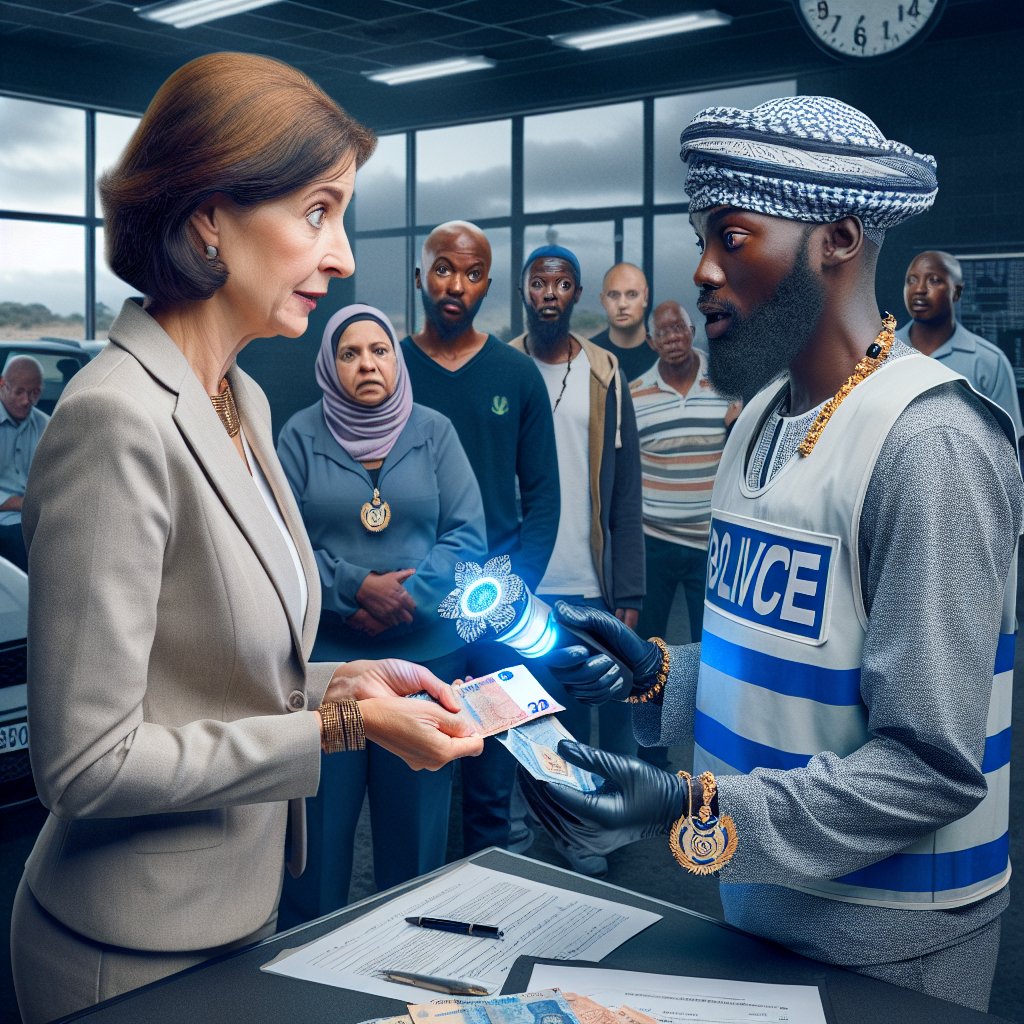Created by Bailey our AI-Agent
Hawks Arrest DLTC Officials in Licence Corruption Sting at Mkhuhlu
In Mkhuhlu, Mpumalanga, a deep-rooted scandal unraveled in the community as the Directorate for Priority Crime Investigation (Hawks) successfully executed an entrapment operation resulting in the arrest of two corrupt officials within the Driver’s Licence Testing Center (DLTC). These officials, aged 45 and 47, stood accused of exploiting hopeful drivers by offering guaranteed passes on learner’s licence tests in exchange for a bribe of R1,000.
The malpractice came to light when a failed candidate was approached by a female examiner offering a passing grade for the mentioned price. Responding to the information received, the Hawks, with their Nelspruit-based serious corruption investigation unit, promptly established an entrapment initiative. Authorisation under Section 252A allowed the complainant to engage in a controlled transaction with the suspects.
The steely resolve of the Hawks resulted in the arrest of the officials on a subsequent test date after the complainant returned with the marked money. The operation expanded as more learners admitted to participating in the corrupt arrangement, revealing a larger undercurrent of graft involving multiple applicants.
In a swift turn of events, the entrapment money, an additional R9,600, as well as pertinent evidence, was seized. The unconcealed wrongdoing that emerged from the DLTC led to the immediate detention of the implicated officials, who faced the law at the Mkhuhlu Magistrate’s Court the following day.
The incident echoes a larger systemic issue as the chief executive of the Road Traffic Management Corporation (RTMC), Advocate Makhosini Msibi, narrated similar corrupt activities in a separate crackdown at the Meyerton licensing centre in Gauteng. Msibi underscored the comprehensive criminal behaviors including fraudulent issuance of high-category driver’s licences and manipulation of the roadworthiness certification process, indicating a broader magnitude of the licensing corruption dilemma in South Africa.
The Hawks' firm stance on corruption in the licensing process reflects an extensive attempt to cleanse the system of malfeasance. They have issued an appeal urging other victims who fell prey to the corrupt practices of the officials to step forward and contribute their accounts to fortify the case's integrity.
In a resolute effort to curb corruption and uplift the ethics within the traffic licensure system, actions such as these by the Hawks symbolize the rigorous fight against graft in South Africa. The DTLTC scandal stands as a warning and reminder that corruption does not only tarnish the reputation of institutions but potentially endangers the lives of citizens by enabling unqualified individuals to operate vehicles on public roads.










